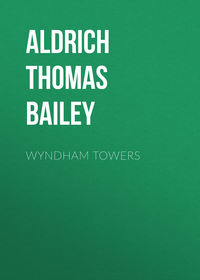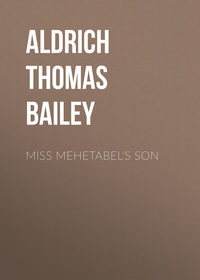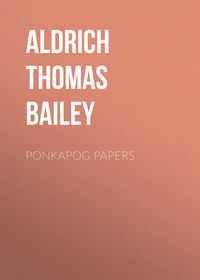 полная версия
полная версияThe Queen of Sheba, and My Cousin the Colonel
"But Miss Ruth"—
"Mr. Lynde," she said, interrupting him, "it was solely to your friendship that my aunt confided me to-day. I should be deceiving her if I allowed you to speak as—as you were speaking."
Lynde saw his mistake. He should have addressed himself in the first instance to the aunt. He had been lacking in proper regard for the convenances, forgetting that Ruth's education had been different from that of American girls. At home, if you love a girl you tell her so; over here, you go and tell her grandmother. Lynde dropped his head and remained silent, resolving to secure an interview with Mrs. Denham that night if possible. After a moment or two he raised his face. "Miss Ruth," said he, "if I had to choose, I would rather be your friend than any other woman's lover."
"That is settled, then," she returned, with heightened color. "We will not refer to this again;" and she brushed away a butterfly that was fluttering about her conceitedly in its new golden corselet.
Meanwhile the guide marched on stolidly with Ruth's reins thrown loosely over the crook of his elbow. In his summer courses up and down the mountain, the man, with his four languages, had probably assisted dumbly at much fugitive love-making and many a conjugal passage-at-arms. He took slight note of the conversation between the two young folks; he was clearly more interested in a strip of black cloud that had come within the half hour and hung itself over the Aiguille du Dru.
The foot-path and the bridle-road from Chamouni unite at the Caillet, a spring of fresh water halfway up the mountain. There the riders dismounted and rested five or six minutes at a rude hut perched like a brown bird under the cliff.
"I've the fancy to go on foot the rest of the distance," Lynde remarked, as he assisted Ruth into the saddle again.
"Then I'll let you lead the mule, if you will," said Ruth. "I'm not the least afraid."
"That is an excellent idea! Why did you not think of it sooner? I shall expect a buonamano, like a real guide, you know."
"I will give it you in advance," she said gayly, reaching forward and pretending to hold a coin between her thumb and finger.
Lynde caught her hand and retained it an instant, but did not dare to press it. He was in mortal fear of a thing which he could have crushed like a flower in his palm.
The young man drew the reins over his arm and moved forward, glancing behind him at intervals to assure himself that his charge was all right. As they approached the summit of the mountain the path took abrupter turns, and was crossed in numberless places by the channels of winter avalanches, which had mown down great pines as if they had been blades of grass. Here and there a dry water-course stretched like a wrinkle along the scarred face of the hill.
"Look at that, Miss Ruth!" cried Lynde, checking the mule and pointing to a slope far below them.
Nature, who loves to do a gentle thing even in her most savage moods, had taken one of those empty water-courses and filled it from end to end with forget-me-nots. As the wind ruffled the millions of petals, this bed of flowers, only a few inches wide but nearly a quarter of a mile in length, looked like a flashing stream of heavenly blue water rushing down the mountain side.
By and by the faint kling-kling of a cowbell sounding far up the height told the travellers that they were nearing the plateau. Occasionally they descried a herdsman's chalet, pitched at an angle against the wind on the edge of an arete, or clinging like a wasp's-nest to some jutting cornice of rock. After making four or five short turns, the party passed through a clump of scraggy, wind-swept pines, and suddenly found themselves at the top of Montanvert.
A few paces brought them to the Pavilion, a small inn kept by the guide Couttet. Here the mules were turned over to the hostler, and Miss Ruth and Lynde took a quarter of an hour's rest, examining the collection of crystals and moss-agates and horn-carvings which M. Couttet has for show in the apartment that serves him as salon, cafe, and museum. Then the two set out for the rocks overlooking the glacier.
The cliff rises precipitously two hundred and fifty feet above the frozen sea, whose windings can be followed, for a distance of five miles, to the walls of the Grandes and Petites Jorasses. Surveyed from this height, the Mer de Glace presents the appearance of an immense ploughed field covered by a fall of snow that has become dingy. The peculiar corrugation of the surface is scarcely discernible, and one sees nothing of the wonderful crevasses, those narrow and often fathomless partings of the ice, to look into which is like looking into a split sapphire. The first view from the cliff is disappointing, but presently the marvel of it all assails and possesses one.
"I should like to go down on the ice," said Ruth, after regarding the scene for several minutes in silence.
"We must defer that to another day," said Lynde. "The descent of the moraine from this point is very arduous, and is seldom attempted by ladies. Besides, if we do anything we ought to cross the glacier and go home by the way of the Mauvais Pas. We will do that yet. Let us sit upon this boulder and talk."
"What shall we talk about? I don't feel like talking."
"I'll talk to you. I don't know of what… I will tell you a story."
"A story, Mr. Lynde? I like stories as if I were only six years old. But I don't like those stories which begin with 'Once there was a little girl,' who always turns out to be the little girl that is listening."
"Mine is not of that kind," replied Lynde, with a smile, steadying Miss Ruth by the hand as she seated herself on the boulder; "and yet it touches on you indirectly. It all happened long ago."
"It concerns me, and happened long ago? I am interested already. Begin!"
"It was in the summer of 1872. I was a clerk in a bank then, at Rivermouth, and the directors had given me a vacation. I hired a crazy old horse and started on a journey through New Hampshire. I didn't have any destination; I merely purposed to ride on and on until I got tired, and then ride home again. The weather was beautiful, and for the first three or four days I never enjoyed myself better in my life. The flowers were growing, the birds were singing—the robins in the sunshine and the whippoorwills at dusk—and the hours were not long enough for me. At night I slept in a tumble-down barn, or anywhere, like a born tramp. I had a mountain brook for a wash-basin and the west wind for a towel. Sometimes I invited myself to a meal at a farm-house when there wasn't a tavern handy; and when there wasn't any farm-house, and I was very hungry, I lay down under a tree and read in a book of poems."
"Oh, that was just delightful!" said Ruth, knitting the fingers of both hands over one knee and listening to him with a child-like abandon which Lynde found bewitching.
"On the fourth day—there are some persons crossing on the ice," said
Lynde, interrupting himself.
"Never mind the persons on the ice!"
"On the fourth day I came to a wild locality among the Ragged Mountains, where there was not a human being nor a house to be seen. I had got up before breakfast was ready that morning, and I was quite anxious to see the smoke curling up from some kitchen chimney. Here, as I mounted a hill-side, the saddle-girth broke, and I jumped off to fix it. Somehow, I don't know precisely how, the horse gave a plunge, jerked the reins out of my hands, and started on a dead run for Rivermouth."
"That wasn't very pleasant," suggested Ruth.
"Not a bit. I couldn't catch the animal, and I had the sense not to try. I climbed to the brow of the hill and was not sorry to see a snug village lying in the valley."
"What village was that?"
"I don't know to this day—with any certainty. I didn't find out then, and afterwards I didn't care to learn. Well, I shouldered my traps and started for the place to procure another horse, not being used to going under the saddle myself. I had a hard time before I got through; but that I shall not tell you about. On my way to the village I met a young girl. This young girl is the interesting part of the business."
"She always is, you know."
"She was the most beautiful creature I had ever seen—up to that time. She was dressed all in white, and looked like an angel. I expected she would spread wing and vanish before I could admire her half enough; but she did not. The moment she saw me she walked straight to the spot where I stood, and looked me squarely in the face."
"Wasn't that rather rude—for an angel?"
"You wouldn't have thought so. She did it like a young goddess with the supreme prerogative to flash herself that way on mortals by the roadside."
"Oh, she was a young goddess as well as an angel."
"After she had looked me in the eye a second," continued Lynde, not heeding the criticism, "she said—what do you suppose she said?"
"How can I imagine?"
"You could not, in a thousand years. Instead of saying, 'Good-morning, sir,' and dropping me a courtesy, she made herself very tall and said, with quite a grand air, 'I am the Queen of Sheba!' Just fancy it. Then she turned on her heel and ran up the road."
"Oh, that was very rude. Is this a true story, Mr. Lynde?"
"That is the sad part of it, Miss Ruth. This poor child had lost her reason, as I learned subsequently. She had wandered out of an asylum in the neighborhood. After a while some men came and took her back again—on my horse, which they had captured in the road."
"The poor, poor girl! I am sorry for her to the heart. Your story began like a real romance; is that all of it! It is sad enough."
"That is all. Of course I never saw her afterwards."
"But you remembered her, and pitied her?"
"For a long time, Miss Ruth."
"I like you for that. But what has this to do with me? You said"—
"The story touched on you indirectly?"
"Yes."
"Well, so it does; I will tell you how. This poor girl was beautiful enough in your own fashion to be your sister, and when I first saw you"—
"Monsieur," said the guide, respectfully lifting a forefinger to his hat as he approached, "I think it looks like rain."
The man had spoken in English. Ruth went crimson to the temples, and
Lynde's face assumed a comical expression of dismay.
"Looks like rain," he repeated mechanically. "I thought you told me you did not understand English."
"Monsieur is mistaken. It is Jean Macquart that does not spik English."
"Very well," said Lynde; "if it is going to rain we had better be moving. It would not be pleasant to get blockaded up here by a storm—or rather it would! Are the animals ready?"
"They are waiting at the foot of the path, monsieur."
Lynde lost no time getting Ruth into the saddle, and the party began their descent, the guide again in charge of the girl's mule. On the downward journey they unavoidably faced the precipices, and the road appeared to them much steeper than when they ascended.
"Is it wind or rain, do you think?" asked Lynde, looking at a wicked black cloud that with angrily curled white edges was lowering itself over the valley.
"I think it is both, monsieur."
"How soon?"
"I cannot know. Within an hour, surely."
"Perhaps we were wrong to attempt going down," said Lynde.
"Monsieur might be kept at Couttet's one, two—three days. But, if monsieur wishes, I will go on and tell the friends of mademoiselle that you are detained."
"Oh, no!" cried Ruth, filled with horror at the suggestion. "We MUST return. I shall not mind the rain, if it comes."
As she spoke, a loose handful of large drops rustled through the pine-boughs overhead, and softly dashed themselves against the rocks.
"It has come," said Lynde.
"I have my waterproof," returned the girl. "I shall do very well. But you"—
The sentence was cut short by a flash of lightning, followed by a heavy peal of thunder that rolled through the valley and reverberated for one or two minutes among the hills. The guide grasped the reins close up to the bits, and urged the mule forward at a brisk trot. The sky cleared, and for a moment it looked as if the storm had drifted elsewhere; but the party had not advanced twenty paces before there was a strange rustling sound in the air, and the rain came down. The guide whipped off a coarse woollen coat he wore, and threw it over the girl's shoulders, tying it by the sleeves under her chin.
"Oh, you must not do that!" she cried, "you will catch your death!"
"Mademoiselle," he replied, laughing, as he gave another knot to the sleeves, "for thirty-eight years, man and boy, I have been rained upon and snowed upon—and voila!"
"You're a fine fellow, my friend, if you do speak English," cried
Lynde, "and I hope some honest girl has found it out before now."
"Monsieur," returned the man, signing himself with the cross, "she and the little one are in heaven."
The rain came down in torrents; it pattered like shot against the rocks; it beat the air of the valley into mist. Except the path immediately before them, and the rocky perpendicular wall now on their right and now on their left, the travellers could distinguish nothing through the blinding rain. Shortly the wind began to blow, whistling in the stiff pines as it whistles among the taut cordage of a ship in a gale. At intervals it tore along the salient zigzags and threatened to sweep the mules off their legs. The flashes of lightning now followed one another in rapid succession, and the thunder crashed incessantly through the gorges. It appeared as if the great cones and cromlechs were tumbling pell-mell from every direction into the valley.
Though the situation of the three persons on the mountain side was disagreeable to the last extent, they were exposed to only one especial danger—that from a land-slide or a detached boulder. At every ten steps the guide glanced up the dripping steep, and listened. Even the mules were not without a prescience of this peril. The sharpest lightning did not make them wince, but at the faintest sound of a splinter of rock or a pebble rustling down the slope, their ears instantly went forward at an acute angle. The footing soon became difficult on account of the gullies formed by the rain. In spite of his anxiety concerning Ruth, Lynde could not help admiring the skill with which the sagacious animals felt their way. Each fore hoof as it touched the earth seemed endowed with the sense of fingers.
Lynde had dismounted after the rain set in and was walking beside the girl's mule. Once, as an unusually heavy clap of thunder burst over their heads, she had impulsively stretched out her hand to him; he had taken it, and still held it, covered by a fold of the waterproof, steadying her so. He was wet to the skin, but Ruth's double wraps had preserved her thus far from anything beyond the dampness.
"Are you cold?" he asked. Her hand was like ice.
"Not very," she replied in a voice rendered nearly inaudible by a peal of thunder that shook the mountain. A ball of crimson fire hung for a second in the murky sky and then shot into the valley. The guide glanced at Lynde, as much as to say, "That struck."
They were rapidly leaving the wind above them; its decrease was noticeable as they neared the Caillet. The rain also had lost its first fury, and was falling steadily. Here and there bright green patches of the level plain showed themselves through the broken vapors. Ruth declined to halt at the Caillet; her aunt would be distracted about her, and it was better to take advantage of the slight lull in the storm, and push on. So they stopped at the hut only long enough for Lynde to procure a glass of cognac, a part of which he induced the girl to drink. Then they resumed their uncomfortable march.
When Lynde again looked at his companion he saw that her lips were purple, and her teeth set. She confessed this time to being very cold. The rain had at length penetrated the thick wrappings and thoroughly chilled her. Lynde was in despair, and began bitterly to reproach himself for having undertaken the excursion without Mrs. Denham. Her presence could not have warded off the storm, but it would have rendered it possible for the party to postpone their descent until pleasant weather. Undoubtedly it had been his duty to leave Miss Ruth at the inn and return alone to Chamouni. He had not thought of that when the guide made his suggestion. There was now nothing to do but to hurry.
The last part of the descent was accomplished at a gait which offered the cautious mules no chance to pick their steps. Lynde's animal, left to its own devices, was following on behind, nibbling the freshened grass. But the road was not so rough, and the stretches protected by the trees were in good condition. In less than three quarters of an hour from the half-way hut, the party were at the foot of the mountain, where they found a close carriage which Mrs. Denham had thoughtfully sent to meet them. Benumbed with the cold and cramped by riding so long in one position, the girl was unable to stand when she was lifted from the saddle. Lynde carried her to the carriage and wrapped her in a heavy afghan that lay on the seat. They rode to the hotel without exchanging a word. Lynde was in too great trouble, and Ruth was too exhausted to speak. She leaned back with her eyes partially closed, and did not open them until the carriage stopped. Mrs. Denham stood at the hall door.
"Mr. Lynde! Mr. Lynde!" she said, taking the girl in her arms.
The tone of reproach in her voice cut him to the quick.
"He was in no way to blame, aunt," said Ruth, trying to bring a smile to her blanched face; "it was I who WOULD go." She reached back her hand unperceived by Mrs. Denham and gave it to Lynde. He raised it gratefully to his lips, but as he relinquished it and turned away he experienced a sudden, inexplicable pang—as if he had said farewell to her.
X
IN THE SHADOW OF MONT BLANC
By the time Lynde had changed his wet clothing, the rain had turned into a dull drizzle, which folded itself like a curtain about the valley. Mont Blanc, with its piled-up acres of desolation, loomed through the mist, a shapeless, immeasurable cloud, within whose shadow the little town was to live darkly, half blotted out, for the next four days.
Lynde spent the afternoon between his own chamber and the reading-room of the hotel, wandering restlessly from one to the other, and not venturing to halt at Mrs. Denham's door to inquire after Ruth. Though he held himself nearly guiltless in what had occurred, Mrs. Denham's rebuking tone and gesture had been none the less intolerable. He was impatient to learn Ruth's condition, and was growing every moment more anxious as he reflected on her extreme delicacy and the severe exposure she had undergone; but he could not bring himself just then to go to Mrs. Denham for information. He concluded to wait until he met her at dinner; but Mrs. Denham did not come down to the table d'hote.
The twilight fell earlier than usual, and the long evening set in. Lynde smoked his cigar gloomily at an open window looking upon the street. It was deserted and dismal. Even the shop across the way, where they sold alpenstocks and wood-carvings and knick-knacks in polished lapis, was empty; in pleasant weather the shop was always crowded with curiosity-mongers. The raw wind spitefully blew the rain into Lynde's face as he looked out. "Quel temps de loup!" sighed a polite little French gentleman, making his unlighted cigarette an excuse for addressing Lynde. The wretched little French gentleman was perishing with a desire to say a thousand graceful things to somebody, but Lynde was in no mood for epigrams. He gave his interlocutor a light, and sheered off. In a corner of the reading-room was a tattered collection of Tauchnitz novels; Lynde picked up one and tried to read, but the slim types ran together and conveyed no meaning to him. It was becoming plain that he was to have no communication with the Denhams that night unless he assumed the initiative. He pencilled a line on the reverse of a visiting card and sent it up to Mrs. Denham's parlor. The servant returned with the card on his waiter. The ladies had retired. Then Lynde took himself off to bed disconsolately.
It was nearly nine o'clock when he awoke the following morning. The storm had not lifted; the colorless clouds were still letting down a fine, vapory rain that blurred everything. As soon as he had breakfasted, Lynde went to Mrs. Denham's rooms. She answered his knock in person and invited him by a silent gesture to enter the parlor. He saw by the drawn expression of her countenance that she had not slept.
"Ruth is ill," she said in a low voice, replying to Lynde's inquiry.
"You do not mean very ill?"
"I fear so. She has passed a dreadful night. I have had a doctor."
"Is it as serious as that? What does he say?"
"He says it is a severe cold, with symptoms of pneumonia; but I do not think he knows," returned Mrs. Denham despairingly. "I must despatch a courier to my husband; our old family physician is now with him at Paris. I have just received a letter, and they are not coming this week! They must come at once. I do not know how to telegraph them, as they are about to change their hotel. Besides, I believe a telegram cannot be sent from here; the nearest office is at Geneva. I must send some messenger who will have intelligence enough to find Mr. Denham wherever he is."
"I will go."
"You?"
"Why not? I shall waste less time than another. There should be no mistake in the delivery of this message. A courier might get drunk, or be stupid. I can do nothing here. If it had not been for me, possibly this unfortunate thing would not have happened. I am determined to go, whether you consent or not."
"I shall be grateful to you all my life, Mr. Lynde. I should not have thought of asking such a favor. Ruth says I was rude to you yesterday. I did not mean to be. I was distracted with anxiety at having her out in such a storm. If there is any blame in the matter it is entirely mine. You forgive me?"
"There is nothing to forgive, Mrs. Denham; blame rests on no one; neither you nor I could foresee the rain. Write a line to Mr. Denham while I pack my valise; I shall be ready in ten minutes. Who is his banker at Paris?"
"I think he has none."
"How do you address your letters?"
"I have written but once since Mr. Denham's arrival, and then I directed the letter to the Hotel Walther."
"He has probably left his new address there. However, I shall have no difficulty in finding him. Mrs. Denham"—Lynde hesitated.
"Mr. Lynde?"
"Can I not see her a moment?"
"See Ruth?"
"My request appears strange to you, does it not? It would not appear strange if you knew all."
"All? I don't understand you," replied Mrs. Denham, resting her hand on the back of a chair and regarding him with slowly dilating pupils.
"If you knew how troubled I am—and how deeply I love her."
"You love Ruth!"
"More than I can tell you."
"Have you told HER?" Mrs. Denham demanded.
"Not in so many words."
Mrs. Denham slowly sank into the chair and for several seconds appeared completely oblivious of the young man's presence; then, turning sharply on Lynde, and half rising, she asked with a kind of fierceness, "Does Ruth know it?"
"A woman always knows when she is loved, I fancy. Miss Denham probably knew it before I did."
Mrs. Denham made an impatient gesture and subsided into the chair again. She remained silent a while, staring at the pattern of the carpet at her feet.
"Mr. Lynde," she said at length, "I was not prepared for this. The possibility that you might grow interested in my niece naturally occurred to me at first. I was pleased when I became convinced that the acquaintance between you had resolved itself into merely a friendly liking. I was thrown off my guard by your seemingly frank manner. I trusted you. You have been alone with my niece but twice—once for only ten minutes. I will do you the justice to say that you have made the most of those two occasions."
"I made very little of those two occasions," said Lynde reflectively.
"I think you have been—treacherous!"
"I do not see what there can be of treachery in my admiring Miss Denham," he replied, with a flush. "I entered into no compact not to admire her."
"Mr. Lynde, Mr. Denham will not approve of this."









